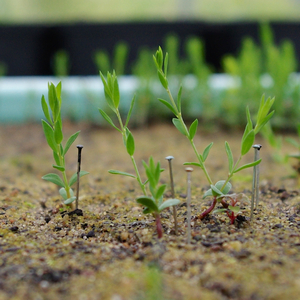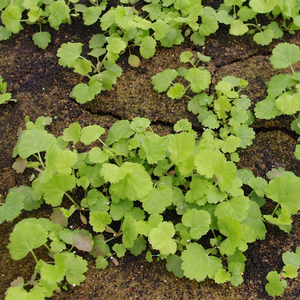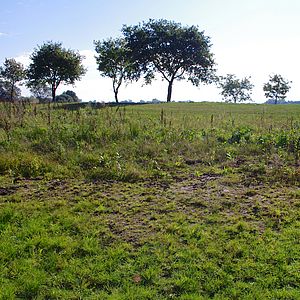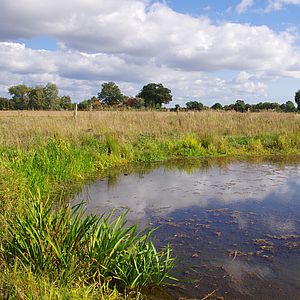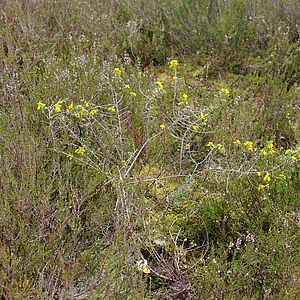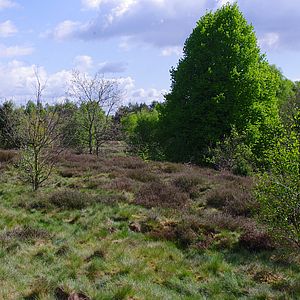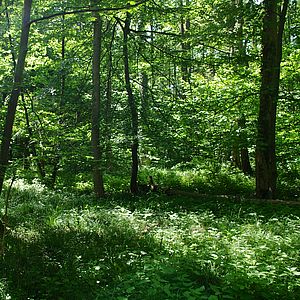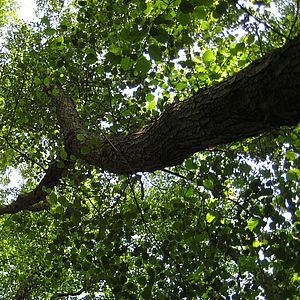Jana Michaelis
Research Associate

I am interested in species responses to various soil variables, especially in the context of the conservation of rare species. Doing my PhD I am currently trying to identify the most important edaphic parameters determining the regional distribution of species and explaining the outcome of plant reintroductions.
My favorite tools for this work are
(1) species response and niche models,
(2) shovel and GPS devise and
(3) pH sensor and DNA extraction kit.
| 2013-16 | Formenkenntnis Pflanzen (B.Sc. Biology) |
| 2013-16 | Grundkurs Ökologie (B.Sc. Biology) |
| 2013-16 | Ökologisches Fortgeschrittenen Praktikum inkl. statistischer Datenauswertung (B.Sc. Biology) |
| 2014-16 | Ökologisches Geländepraktikum (M.Sc. Ecology) |
| 2011-12 | Tropical aquaculture & it´s physiological basics (M.Sc. ISATEC) |
Published / in press
Michaelis, J. & Diekmann, M. 2017. Biased niches – Species response curves and niche attributes from Huisman-Olff-Fresco models change with differing species prevalence and frequency. PLOS ONE 12(8): e0183152.
Helsen K, Smith S, Brunet J, Cousins SAO, De Frenne P, Kolb A, Lenoir J, Ma S, Michaelis J, Plue J, Verheyen K, Speed J, Graae BJ (2018) Impact of an invasive alien plant on litter decomposition along a latitudinal gradient.Ecosphere.
Michaelis, J. & Diekmann, M. 2018. Effects of soil types and bacteria inoculum on the cultivation and reintroduction success of rare plant species. Plant Ecology
Michaelis, J., Pannek, A. & Diekmann, M. Soil pH limits of forest vascular plants determine range size and threat level. Journal of Vegetation Science, 27: 535-544
Diekmann, M., Michaelis, J. & Pannek, A. 2015. Know your limits - the need for better data on species responses to soil variables. Basic and Applied Ecology 16: 563-572.
Submitted
Helsen K, Hagenblad J, Acharya KP, Brunet J, Cousins SAO, Decocq G, De Frenne P, Kimberley A, Kolb A, Michaelis J, Plue J, Verheyen K, Speed JDM, Graae BJ. Sequential population re-establishment does not result in genetic erosion of Impatiens glandulifera across its invaded range in Europe.
Michaelis J, Knauth S, Diekmann M & Eickhorst T. Reintroduced plant species and their rhizobial communities are stongly affected by soil properties and less by plant growth promoting rhizobacteria.
Michaelis, J. & Diekmann, M. (2016). How to handle rareness? – Prevention of bias in Huisman-Olff-Fresco models due to unbalanced sampling. 59th Annual Symposium of the International Association for Vegetation Science (IAVS) (12.-17.06.2016), Pirenópolis, Brazil. (Talk) |
Michaelis, J., Pannek, A. & Diekmann, M.: Ecological significance of soil pH limits for forest vascular plants. 58th Symposium of the International Association for Vegetation Science (19-24.07. 2015): Abstract Book p. 255. Brno, Czech Republic. (Talk) |
| Since 2013 | Dissertation in Vegetation Ecology, University of Bremen, Bremen Thesis title: ‘Species responses and niche quantification of vascular plants in the context of plant reintroduction’ |
| Since 2013 | Research Associate, University of Bremen, Bremen Group: Vegetation Ecology and Conservation Biology |
| 2012 | Trainee, Deutsche Gesellschaft für Internationale Zusammenarbeit, Frankfurt Group: SustainaJana Michaelisble fisheries & coastal zone management |
| 2004 - 2012 | ‘Diplom’ studies in Biology, University of Bremen, Bremen Majors: Marine Biology, Ecology, Geoscience |
| 2005 - 2012 | Student assistant, University of Bremen & Leibniz Center for Tropical Marine Ecology, Bremen Groups: Biogeochemistry, Program Coordination Asia, Molecular plant physiology |
| 1995 - 2004 | Abitur, Dreikönigsgymnasium, Köln |
IMPULSE Grants, Young Reseachers Committee of the Central Research Development Fund of the University of Bremen, 2015
IAVS International Association for Vegetation Science
IAVS Travel Award 2016, IAVS Symposium in Pirenópolis, Global Sponsorship Committee, International Association for Vegetation Science
DAAD Travel Grant 2016, IAVS Symposium in Pirenópolis, Deutscher Akademischer Austauschdienst
IAVS Travel Award 2015, IAVS Symposium in Brno, Global Sponsorship Committee, International Association for Vegetation Science

